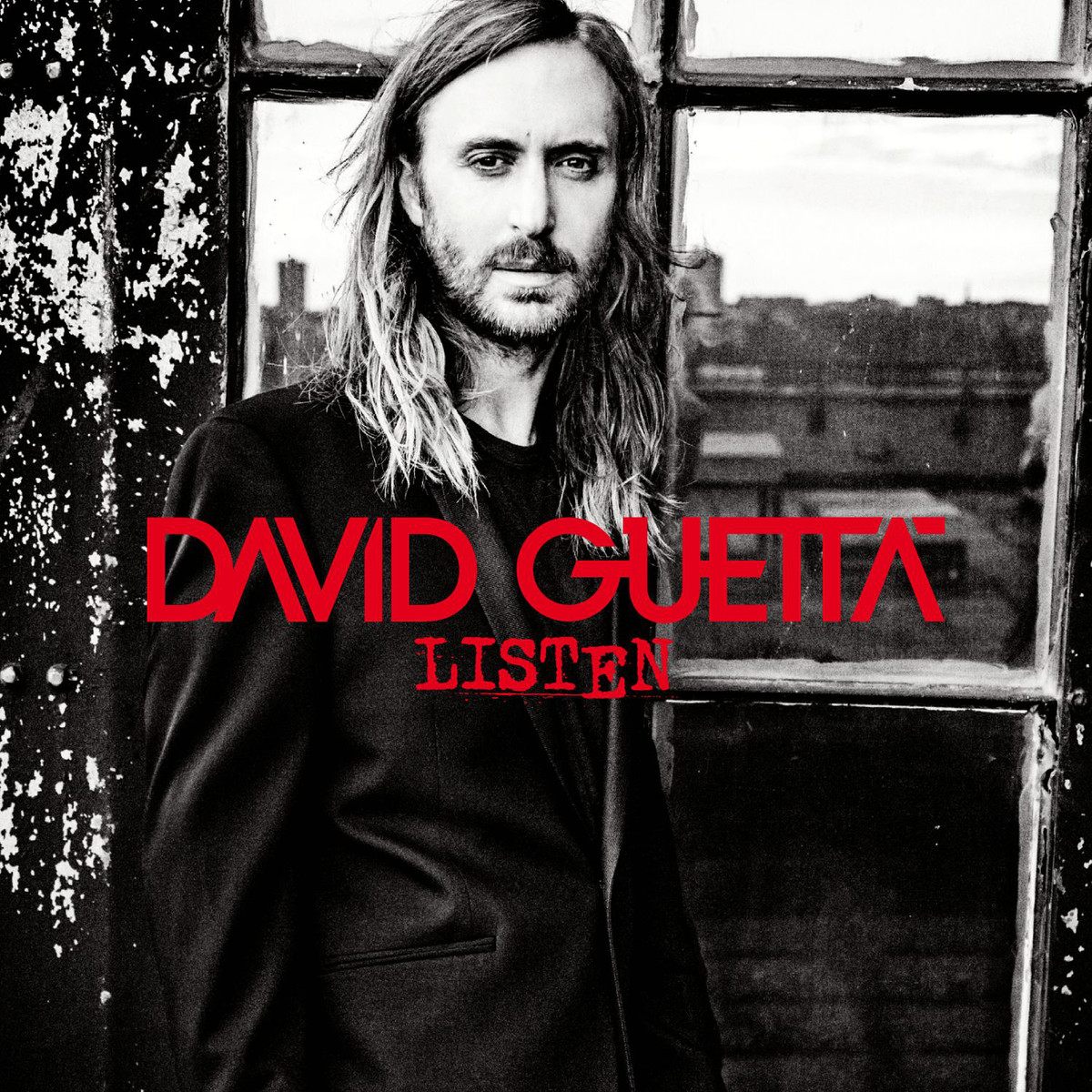
Though he’s frequently lumped in with wunderkinds like Avicii and Skrillex as part of this decade’s EDM wave, David Guetta is actually a member of a completely different generation of electronic sculptors, one with roots in the clubs and scenes of the ‘80s and ‘90s that reigned when some of his contemporaries were still in diapers. Long before he mastered the art of the EDM-pop crossover, Guetta was just another capable DJ operating on the periphery of the French dance scene. He was a tangential figure present during the rise of French touch, a strain of dance music made distinct by the use of filtered and warped funk and disco samples that bloomed at the end of the ‘90s in France; Guetta failed to reach the heights of contemporaries like Daft Punk and Air at the time, but his 2001 single “Just a Little More Love” was enough to spark a full-length of the same name and a burgeoning European stardom.
As the decade progressed, Guetta racked up hit singles across the continent, but failed to achieve any sort of international success — the U.S. included. That changed with the release of 2009’s One Love, a star-studded affair that cracked American charts in a major way with help from collaborators like Akon, Kelly Rowland, and Rihanna. By this point, Guetta had largely abandoned the subtlety and playfulness of French touch for giant synth hooks, a focus on vocal takes, and the influence of modern hip-hop and R&B — but after a look at the chart figures for a single like “Sexy Bitch,” can you blame him? The set of singles that One Love spawned, and production work on The Black Eyed Peas’ titanic hit “I Gotta Feeling,” were some of the first volleys in what would become contemporary electronic music’s assault on listeners around the world.
Meanwhile, Guetta continued to explode: 2011’s Nothing But the Beat solidified his position as one of the world’s preeminent producers, with three top 10 U.S. singles and features from Usher, Sia, and Nicki Minaj. Beyond sheer numerical force, Guetta’s work on Nothing But the Beat penetrated the public consciousness in a way few producers had done to that point, paving the way for a new reality where they become stars in their own right rather than studio forces; every time “Titanium” played over gym loudspeakers or at a high school dance, it affected a tiny change in the pop landscape. Guetta is releasing his sixth studio album, Listen, out Nov. 24 on Atlantic/Parlophone, into that new landscape.
According to Guetta, Listen is his most personal record to date, though you’d be hard pressed to tell unless you did a little research beforehand. He wrote much of the album in the wake of a divorce from his longtime spouse, but it only bears fruit on the album in subtle ways: chords that are unexpectedly melancholy, lyrics that are a little more somber than his usual hedonistic celebrations. These are necessarily subtle changes because Guetta’s music is explicitly designed to achieve ecstatic, cathartic climaxes, the kind that’ll help listeners forget their own problems, and those moments remain the focus of Listen. A more palpable shift the record makes is one towards basic melodies on piano and guitar, and songs with a classicist streak built from the ground up on those melodies. The Emeli Sandé feature “What I Did for Love” opens with a garish piano line where it might have charged in on a beat in years past, taking its time to grow to its full size.
Listen’s main problem lies with its vocals, which are varied and largely anonymous despite another cast of international stars. Though Guetta takes a few sonic risks throughout the album — there are songs flecked with strings and country guitar, there are ballads and reggae tracks, there’s a lot of paint thrown against the wall — the performances that anchor these songs are sadly conservative, boilerplate house fare from an array of vocalists lacking any real character. Even stars who possess a semblance of distinct tone and texture, like John Legend — typically rich and soulful — are robbed of those qualities by overprocessing. The only vocalist who manages to stand up to the force of Guetta’s production is Sia, back for another few rounds after “Titanium,” who carries “Bang My Head” and the melancholy closer “The Whisperer.” And although Guetta can still craft a stadium-sized synth hook with relative ease, something about Listen — its structure, its lyrical content, its tones and decisions — feels a little outdated, like it would’ve sounded more at home a half-decade ago than now. That’s the trouble with a genre as vital and volatile as contemporary EDM: artists who reigned over their peers one year can find themselves struggling to keep up by the time they’re ready to release their next record. And while Guetta was instrumental in conditioning popular music for the rise of DJs and producers with his last two records, Listen finds him falling a half-step behind today’s dominant forces.
More Must-Reads from TIME
- Cybersecurity Experts Are Sounding the Alarm on DOGE
- Meet the 2025 Women of the Year
- The Harsh Truth About Disability Inclusion
- Why Do More Young Adults Have Cancer?
- Colman Domingo Leads With Radical Love
- How to Get Better at Doing Things Alone
- Michelle Zauner Stares Down the Darkness
Contact us at letters@time.com